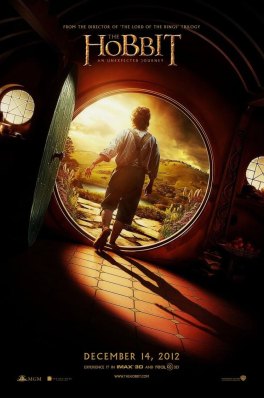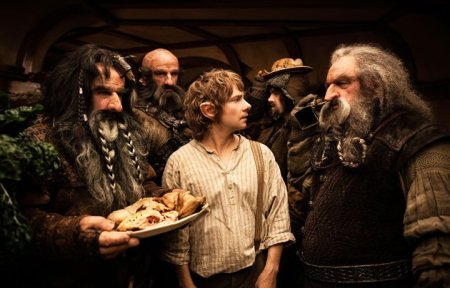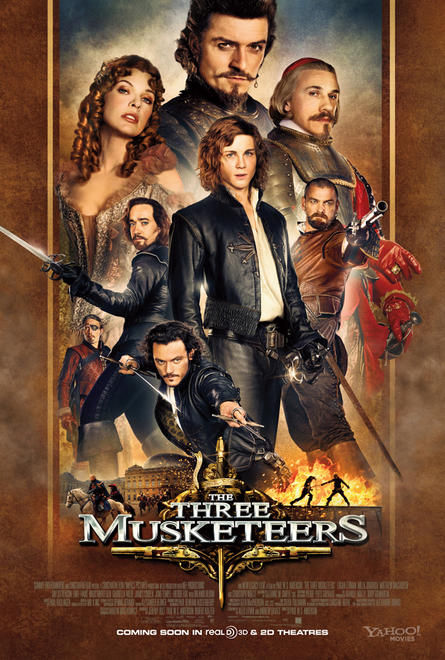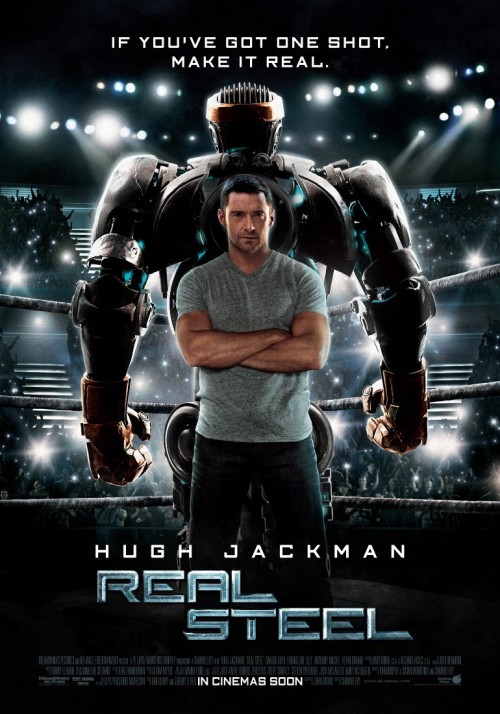
Technically a way to spend your time!
We made sure to get there early. After all, John Carter was so well advertised that almost two of my friends had heard of it. What if it sold out? This was opening day after all. As we pull into the theater, I see a giant, swarming mass of bodies. Lines everywhere! Noooo! Whyyy? Why didn’t we get there even earlier?
Turns out it was Bollywood night and it was just a bunch of Indian folk lined up to see Kahaani-D. Still, we barely managed to snag a seat for John Carter. By the time we arrived, they only have 307 seats remaining, at least, 307 in the IMAX theater. As far as I could tell, the other showtimes were completely empty.
And by the end of the movie, did we ever feel foolish for being there. What an utterly horrible attempt at cinema! The acting was flat and generally atrocious, the characters unlikeable, and their motivations were muddled or non-existent. The love story was totally stale and unbelievable, and the girl wasn’t even that hot. Even the color scheme of the movie was confusing! All people are red people, but some red people fight with blue energy? And some blue energy users are bad, and there’s green aliens who are good, but also green ones who are evil, and…Oh god.
The first problem with the movie is the opening scene, always a bad sign. It begins on Mars with some lofty explanation of some cultures and their problems. One city at war with another one or something, and there’s an evil one and a good one, but who knows which is which? Then there’s a battle on some sky-ships, and you have no idea which characters represent what, but one ship is getting shot the fuck up by three other ships, so you immediately start rooting for the underdog. And then, suddenly, when he’s about to be overcome, some godlike people come down and grant him an all-powerful wristband. If he chooses to wield it, he can be the next king.

I should have known Mark Strong was evil because, well, he's always evil.
Now, my friends and I are pretty intelligent. High SAT scores, good schools. But as we watched this, we assumed that this underdog was the aforementioned good species and that he would now have a way to fight off the villains. Yay! I thought. The hitherto unseen villains are about to get some serious comeuppance. And then my mind continued. Is this in the past? Does this king go mad with power after so many years? Will John Carter have to stop him now that he’s abusing his bracelet, and if so, how will he defeat the bracelet?!
Turns out this wrist-band wielding character is the villain and some god-people decided to give him the bracelet for no reason, and now John Carter has to defeat him. And when I say “no reason,” I mean no reason. This movie commits the worst atrocity I’ve ever heard of in the history of storytelling. At one point the villain (played by Mark Strong, who is awesome) has captured John Carter. And Carter says something like “Why are you doing all of this?” And the bad guy replies, “We have no goals. Our species is immortal. We have no motivations for any of the things we do.”
Whaaa?!?! I’m sitting there, mouth agape, utterly taken aback. That’s the opposite of characterization! How can I possibly buy into the storyline if—what?!?! If you have no goals or motivation, why are you doing any of the things you’re doing?! Why are you doing anything? Wouldn’t everyone be living peacefully if you hadn’t interfered? I just, I, ergg, laskjg ahhhhhhh.
I still can’t think about that statement without my brain breaking. It’s like Captain Kirk outlogicing a robot into blowing itself up “Russ, I have this great idea for a character,” Kirk would say to me. “Sweet. Tell me about him.” “Ok, so he’s this immortal guy, but when I say immortal, I mean that he immediately dies from even a single gunshot no matter where it strikes him, and he has no goals or reason to do anything.”

And then my head explodes.
My friends and I decided that these immortals had lived so long that almost nothing could entertain them anymore. They’d seen and experienced so much that only the most epic situations could stir any emotions in them. Thus, they traveled from planet to planet, riling up the local species and working behind the scenes to create an all-out war. Watching it unfold and seeing all living creatures murdered in their apocalypse is the only thing that can help keep the boredom at bay for a moment.
That would also explain why these all-powerful beings chose to interfere in only the most minor of ways. They have access to an infinite amount of energy, can shape-shift to look like anyone, and can teleport. Who knows what other powers they have? If they want to get something done, they could fucking do it. Why have the princess come to her wedding? Why not just shapeshift to look like her and attend the wedding yourself? Why give the evil king that bracelet? Why not just kill him and become king? Why do anything at all?! Oh wait, even the movie couldn’t figure that one out. That’s why they had the villain state his complete lack of motivation! Well I guess that justifies it then. They’re 100% illogical beings.
Oops, this is already really long and I haven’t talked about the main character. I’m just trying to make the experience of reading this review a lot like watching the movie. Confusing, out of order, and utterly terrible. In the best way, of course! John Carter himself is completely unlikable. He’s a confederate cowboy who doesn’t care about anyone or anything and just wants to find a cave full of gold (and then he fights aliens. Sound like Cowboys & Aliens, anyone? And then he ends up spending a lot of the movie wandering through the desert with a princess. Prince of Persia much?). He sucks in every conceivable way. He has no sense of humor, he’s only sort of attractive, and the actor has no range whatsoever.
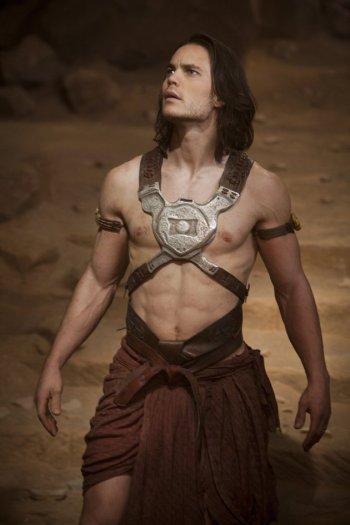
This was taken just after they asked him what the movie was about.
Throughout the film, he’s constantly bludgeoning into your head the idea that he fights for no man, that causes are for chumps. And this princess chick keeps trying to convince him that her cause is worthy, and then he says, “I fight for no man. Causes are for chumps,” and so forth and so on.
That’s great. At least this guy has characterization, albeit a crappy one. And you’re watching, thinking, I bet he’ll undergo a thing called character change, and by the end he’ll realize what’s important. I don’t think the people who wrote this have ever heard of character change, because it DOES NOT OCCUR.
He never, ever decides to fight for a cause. He’s never convinced that princess girl’s cause is just. The first time he fights, it’s to save the girl because she’s hot and he wants to bone her. And then he’s fully committed to going home and letting all the Martians perish, but someone points out that technically hot girl is a Martian, and that she’d be perishing. And you can see the moment when the thought crosses his face (again, thanks to such great acting). Wait, if hot Martian girl perishes, I will have no place to house my glorious cock! “To battle!” There is no indication ever given that John Carter gives one modicum of a shit about anyone. The moral of this movie is: don’t believe in anything. Believing in things is stupid. Now, how do I get laid?

I probably shouldn't be complaining. That's basically my main motivation.
Some of you might say John Carter has a change of heart because he falls in love. Love? LOVE?! There are a few scenes that look as though they might be trying to convey this feeling, but there are only about 2 such scenes, and they take up almost no time, and they’re horrible written. “Still playing at the madman?” asks the princess, referencing an earlier line of dialogue. “Or the thief,” smiles John Carter. And the princess swoons. Have you ever heard a line so charming? Oh wait, it’s not charming at all, and yet the director clearly tells the girl to swoon, and he asks John Carter to try to make it sound like he’s wooing her, although I’m sure no direction is capable of altering his monotone feeling: mild anger.
I can see casting an actor without range. Sometimes movies cast a hot person instead of a talented one, you know, to appeal to us young folk. But this movie was so poorly cast I wanted to tear my beard out. The main actor is such a pretty boy that he clearly cannot grow a beard. He wears one in the beginning of the film, and it looks so ridiculous that when you first see him you can’t help but laugh. He’s supposed to be this withered old war veteran with a wife and children, but he’s super young looking. This role absolutely needed to be played by someone much, much older, like Harrison Ford or Daniel Craig (oh shit! Cowboys & Aliens again!).

Lookin' Good
Those are most of the major problems, but I still feel that I haven’t accurately conveyed how riddled with minor flaws this film was. What about the time Carter, princess, and that utterly irrelevant green alien girl all go to that mystical river? Green alien girl is about to get into a canoe, which, to me, seems like a completely reasonable action. Then Carter sprints over to her all dramatic-like and says something along the lines of “Noooo! Don’t throw your life away!!” What?! What is he talking about? Is it some sort of suicide canoe? How do you even kill yourself with a canoe? Like, maybe if you had some rope, you could tie yourself and capsize it, but that doesn’t seem that effective, and they didn’t have any rope. This movie never explains the stakes of any given action, so they all just seem silly. And after Carter successfully convinces her that life is worth living, after she’s determined to avoid the dangers of canoeing, Carter goes “Let’s all hop in a canoe!” And the three of them start canoeing down the river. Whaaa?!
What’s so mystical about the river anyway? I get that there’s important technology at the center, but the green chief makes it sound like no one ever goes to the river because it’s so powerful and ancient and whatnot. But then Carter and co. run into a giant horde of violent green aliens who are right there. They don’t seem worried about the river’s mysticism one bit.
They seem more interested in fighting John Carter, which is a bad decision, because he and his dog-like companion fuck them up in one of the worst examples of intercutting I’ve ever seen. Some sappy music sets the mood, drowning out the sounds of violence, and we’re treated to scenes of Carter burying his wife and child spliced in with scenes of him killing huge quantities of aliens. His shove stabs the earth, his sword stabs an alien. What a clever juxtaposition! Too bad we know nothing about his wife and feel nothing for his plight. Too bad the actor doesn’t have the gravitas to make us care. The scene does not work at all.
On the plus side, the dog creature is a real champion. In fact, he was my favorite character. He seemed to make the most logical choices and have the clearest motivation. He took a liking to John Carter and spent the movie trying to protect him, always choosing the course of action that would best bring about Carter’s safety. The more I thought about it, the more I figured maybe the whole thing was the dog’s plan. There was only one of his species shown the entire film, so he has to be some sort of rare magical beast. Maybe he’s the counter to the villain—an all-powerful creature who uses his strength for good instead of evil. Maybe he knows that John Carter is the key and is nudging him to greatness. Yeah. I like that.

The best character in the movie, and I don't even know his name.
Almost done, but first I have to talk about some fun logic problems. Carter explains at the end that teleportation works like a telegram. A copy of his earth-based body is created on Mars. He then goes on to explain that his earth body must be protected at all costs, because if he dies on earth, his copy dies on Mars, you know, like a telegram. That’s what made those early world wars so problematic. Burn the original telegram and all others are immediately destroyed! Made sending orders super difficult.
So based on this, Carter devises a way to protect himself. He will lock his earth-body in a crypt that only opens from the inside. This stone structure will surely protect him from the immortal beings who can shoot blue rays that incinerate everything in their path including giant metal warships. Brilliant, Carter. Brilliant!
And he also doesn’t explain what his body is doing the whole time he’s on Mars. It’s not like telegrams instantly fall into comas or anything. The way he tells it, it seems like his body would keep doing stuff, completely unaware that a copy was out on planet number 4 being a hero. When Carter teleports back to earth, what the crap is happening? In order to accomplish that, wouldn’t he actually just be producing another copy of himself? Wouldn’t there be two of him on earth now? One that had the memories of the Mars trip, and one who just thought he fell asleep in a cave? Jesus. I don’t know.
And what’s up with Carter drinking some weird Martian liquid and then immediately understand Mars-speak. You know what, I’m actually ok with that. It’s science fiction. They can have some magic. But why does the universal translator juice selectively malfunction? It’s able to translate every word perfectly, that is, unless it sounds cool not too. I was dying of laughter every time Carter and the princess bickered over the correct name of something. Like Mars was called “Barsoom.” But they were both perfectly happy to call water “water.” And sex was easily translated to “the only reason I choose to do anything.”

And yet it was all worth it, because once we got out of the movie (which began after TWENTY-FOUR minutes of trailers), we stood outside in the freezing cold for an hour and a half, just to tear the thing apart. We got an entire movie’s length of entertainment ripping on the thing! And what a blast that was! So if you have a couple of good friends who are great at picking apart every single aspect of a film, bring them along. It’s worth your money.
Score:

Alignment:









